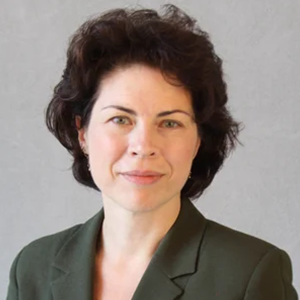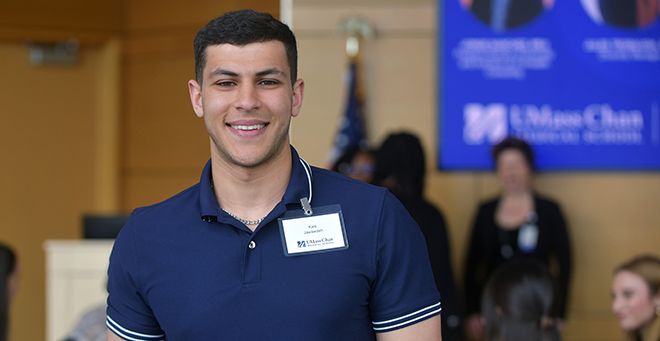
During a May 17 Centering the Margins event organized by the Diversity and Inclusion Office, Renée M. Landers, JD, professor of law and faculty director, Suffolk University Law School, explained the 2023 U.S. Supreme Court decision in the Students for Fair Admissions v. Harvard and UNC cases, which ruled that the use of race in admissions was not consistent with Title VI of the Civil Rights Act and the Fourteenth Amendment.
“In the decision, Chief Justice Roberts famously intoned that eliminating racial discrimination means eliminating all of it. So, discrimination, in furtherance of developing equity is not permissible,” Landers said.
Landers said that though there is a standard under the U.S. Constitution for determining whether some use of race is permissible, the court has always applied a strict scrutiny test wherein the use of race must serve a compelling governmental interest and the practice must be narrowly tailored or necessary to achieve that interest.
In sharing implications about the ruling, Landers referenced a reflection piece by legal-affairs scholar and journalist Lincoln Caplan, JD, for Harvard Magazine in which he concluded that the reason many disapprove of race in college admissions is because they inaccurately define race-based affirmative action as a guarantee of results, as opposed to an effort to equalize opportunity. “And if you look at the representation and selective institutions, of Blacks and Hispanics, you can see that it is a very limited advantage,” Landers said.
Tracy Kedian, MD’96, professor of family medicine & community health and associate dean of admissions for the T.H. Chan School of Medicine, explained how the ruling has impacted UMass Chan.

“It is true that even the transparent use of affirmative action as a tool has not helped us to reach our diversity goals. It does not mean, however, it was helpful to lose that option. It just took an important piece off the table for us,” Dr. Kedian said.
Kedian called attention to the fact that UMass Chan’s efforts to make diversity a priority at the Medical School has been an ongoing conversation long before the Supreme Court’s decision.
For example, in recent years UMass Chan increased the size of the T.H. Chan School of Medicine admissions committee from 30 to 60 people with diverse perspectives and backgrounds, she said. In addition, the approach to academic metrics was revised to be more data driven. Applicants with broader ranges of Medical College Admission Test (MCAT) scores and grade point average (GPA) values are being considered if they fall within a range indicating that they are highly likely to be academically successful based on the data from the Association of American Medical Colleges MCAT Validity Project.
“No one on the admissions committee who does interviews or reads applications sees anyone's MCAT score or GPA, because we are automatically going to be biased by that,” she said. Kedian emphasized that overall, continued investment in the T.H. Chan School of Medicine pipeline programs that prepare students for medical school are likely to have the greatest impact in reaching diversity goals. Those programs include the Baccalaureate MD Pathway Program, UMass Chan Scribe Fellowship, Pipeline for Underrepresented Students in Medicine and Summer Enrichment Program.
“The more students and stronger offerings we have will lead to stronger acceptance rates,” said Kedian. “We can and we are trying to bring in a class that will contribute to the diversity of our institution.”


